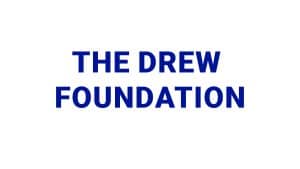For those who believe in God, faith means placing your total trust in him and having confidence that he’ll fulfill all his promises.
You might be wondering what the connection is between faith and mental health. But you may be surprised to find that faith can positively impact your overall mental health.
Are There Health Benefits to Having Faith?
Believing in something larger or more important than yourself can give purpose and meaning to your life. Research suggests there are many health benefits to having faith, including a reduction in alcoholism, drug use and suicide. Plus, having a faith community to rely on in times of distress or crisis can negate feelings of isolation or desperation that are often the reasons behind drug or alcohol addiction.
The Mental Health Benefits of Faith & Spirituality
The mental health benefits of faith and spirituality are numerous. However, these benefits are primarily attributed to three things that faith helps with: encouraging mindfulness, promoting a sense of unity and providing structure to your life.
Encouraging Mindfulness
Faith beliefs often involve practices like meditation. Depending on your beliefs, you may have specific practices that are regularly carried out, including prayer or personal reflection. These practices can bring peace on their own, but they can also train your brain to be more mindful of yourself and your surroundings.
Mindfulness has been shown to reduce anxiety and prevent depression. It’s also been shown to reduce natural biases humans form about others in reference to their age, social status or race. Ultimately, increasing mindfulness offers many mental health benefits.
Promoting a Sense of Unity and Belonging
The reason many people turn to drugs or alcohol is that they feel alone during a crisis or while working through particularly stressful life events. Bearing this stress alone is detrimental to your physical and mental health.
However, spiritual beliefs and belonging to a faith community can ease this burden by promoting a sense of unity that reduces the burden of mental health conditions like anxiety or depression.
Providing Structure and Rules to Live By
Faith beliefs and spiritual values provide structure and rules on which people of all ages thrive. When you have firm, transparent guidelines to live by, much doubt and uncertainty are taken away. You’re also given positive coping skills you can use to fulfill your physical, mental or spiritual needs, whatever those may be.

How Mental and Physical Health Are Intertwined
Spirituality and faith may not directly improve your physical well-being. But the mental benefits of regular practices and the spiritual aspects of faith can improve your physical health, too.
Poor mental well-being can cause physical problems, including a weakened immune system that allows you to become ill more frequently. Additionally, better mental health can decrease your risk of developing certain chronic conditions that significantly decrease your long-term health outcomes.
This means relying on spirituality and faith to improve your psychological well-being will often lead to more positive outcomes with your physical health. This is one of many reasons health professionals consider their patients’ beliefs when devising mental health care plans and physical wellness programs.
Substance Abuse & Faith
Faith and spirituality have long had a place in substance abuse recovery. One research study found that nearly three-quarters of addiction treatment programs in the United States included faith factors. Even more interesting is that the individuals who embraced a practice during recovery were more likely to remain sober long-term.
The connection between spirituality, mental health, and addiction is more substantial than you think. Not only do faith based traditions help people recover, but they can also stop them from abusing addictive substances in the first place.
The most apparent way faith prevents addiction is through biblical teachings. But there’s another reason having faith can reduce the risk of addiction: The risk of mental health issues is significantly decreased in people with faith.
As mentioned above, faith can increase awareness, leading to higher self-esteem. Having a strong faith community can also provide support and meaningful relationships.
What Are the Warning Signs of Addiction?
If you’re concerned about a potential substance abuse problem in yourself or a loved one and want to know when to seek treatment, understanding the warning signs of addiction is crucial. Before diving into the signs, it’s important to stress that addiction doesn’t make someone a bad person. It just means they made some poor decisions. As anyone with a faith background will tell you, forgiving yourself and others is an important aspect of any recovery process.
That said, a few of the warning signs of addiction include:
- Risk-taking behaviours
- Paranoia or unstable mood swings that suggest one or more psychiatric disorders
- General emotional distress
- Changes in appetite, sleep patterns or hygiene
- Neglecting responsibilities (including at work or school)
- Unusual smells on a person or their breath
- Sudden and unexplained changes in friends, hobbies or interests
If you or someone you love is facing addiction, know there’s always hope. Embracing religious coping mechanisms and holding onto your faith can help you heal. Adult & Teen Challenge offers inpatient services to help with recovery.
Overcoming addiction needs to include social support (like support groups), understanding the clinical implications of illicit substances and being able to focus on your healing. Many also find that supporting the families affected can increase the likelihood of remaining in recovery. Our clinical counselling can help with this.
We also provide support for people in crisis through our Lighthouse Mission program.

How Adult & Teen Challenge of Central Canada Can Help You
Our faith-based program is suitable for everyone, whether battling addiction or trying to improve your mental health. Contact our team today to learn more about our program, services and faith community. Faith isn’t something to hide from — it’s a tool offering guidance to overcome mental health and substance abuse issues. Call (204) 949-9484 now to begin your recovery journey.



































